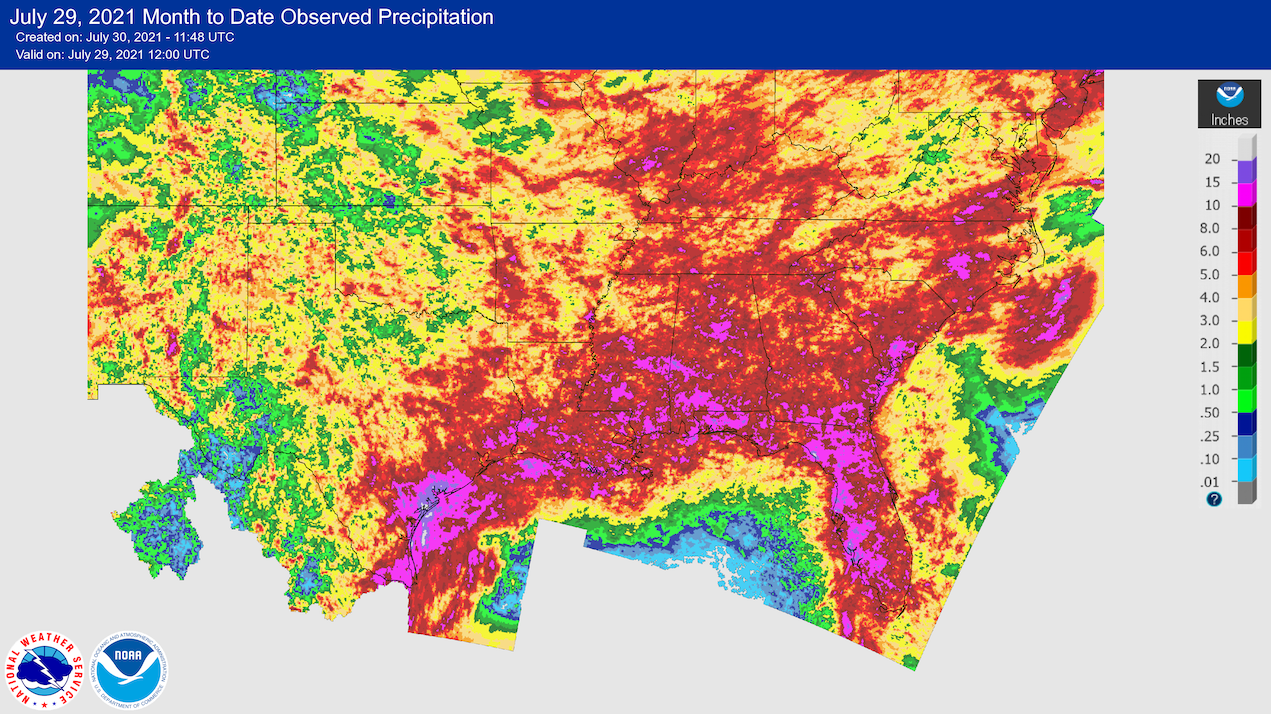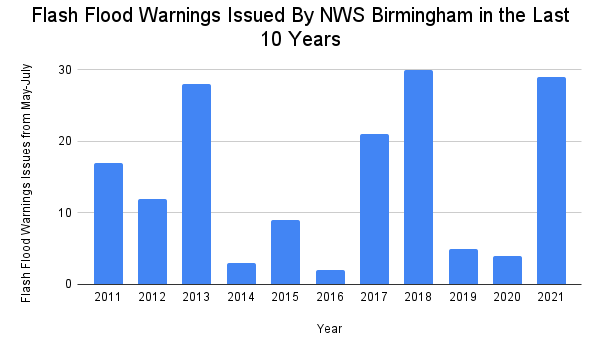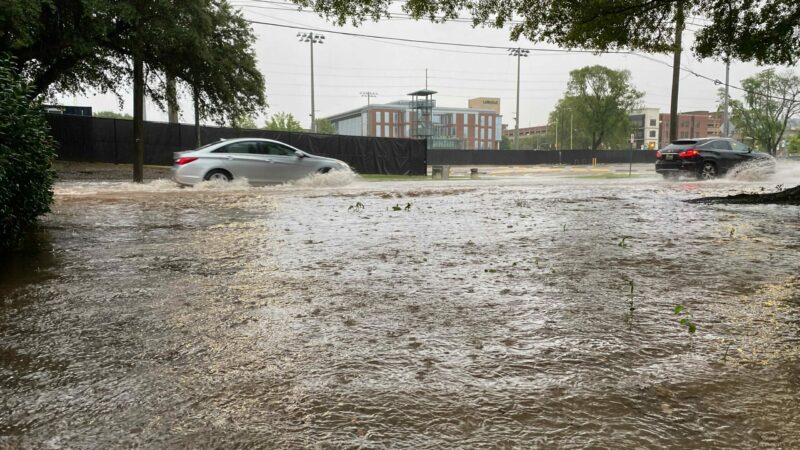You’re Right, It Has Been Raining More Than Usual This Summer In Birmingham
If you feel like it’s raining a lot more than usual this summer, you’re right.
“We’re no stranger to showers and thunderstorms here during the summer months, but we have exceeded the normal rainfall across much of central Alabama,” said Jason Holmes, a meteorologist at the National Weather Service (NWS) in Birmingham.
In Birmingham, the rainfall was 3.68 inches above normal at 8.46 inches in June. In July, it’s been 3.24 inches above normal at 8.66 inches. Overall since the beginning of 2021, the rain has been 9.04 inches above normal at 44.87 inches.

National Weather Service in Birmingham
Regional rainfall map for the month of July.
Rains from Tropical Storm Claudette, which passed through the region in June, contributed to the high numbers. A strong high-pressure system in the West is also a factor. While places like the northwest United States and southwest Canada are dealing with record high temperatures and wildfires, the opposite effect is happening here. As a result, central Alabama is experiencing lower temperatures and flash floods due to the high amounts of rain.
In fact, there were 29 flash flood warnings issued by the NWS in Birmingham since May 1. These warnings go out to 39 counties in central Alabama. By comparison, last year there were only four. Flash floods occur when there is more rain than the soil can absorb, causing run-off, and it’s usually worse in urban areas.

Eva Tesfaye,WBHM
Flash flood warnings issued by the NWS in Birmingham in the last ten years.
Tom Di Liberto, a climatologist at the National Oceanic and Atmospheric Administration’s climate program, says this kind of weather is consistent with what scientists expect to see through the middle of the 21st century in terms of climate change. More moisture in the atmosphere leads to more heavy rainfall.
“Extreme rainfall events are increasing, and they’re expected to increase even more across the southeast due to climate change,” Di Liberto said.
Both Holmes and Di Liberto suggest staying prepared for heavy rainfall and flash floods: being aware of the areas near you that are likely to flood, knowing where to go if your house is prone to flooding, and getting flood insurance. The NWS calls this being a “weather-ready nation.”
“That’s basically being ready for these sorts of extremes because, you know, the science says that these extremes might happen more frequently,” said Di Liberto.
Editor’s Note: The headline of this story has been updated to change “You’re Not Crazy…” to “You’re Right…”
U.S.-Israeli strikes in Iran continue into 2nd day, as the region faces turmoil
Israel said on Sunday it had launched more attacks on Iran, while the Iranian government continued strikes on Israel and on U.S. targets in Gulf states, Iraq and Jordan.
Trump warns Iran not to retaliate after Ayatollah Ali Khamenei is killed
The Iranian government has announced 40 days of mourning. The country's supreme leader was killed following an attack launched by the U.S. and Israel on Saturday against Iran.
Iran fires missiles at Israel and Gulf states after U.S.-Israeli strike kills Khamenei
Iran fired missiles at targets in Israel and Gulf Arab states Sunday after vowing massive retaliation for the killing of Supreme Leader Ayatollah Ali Khamenei by the United States and Israel.
House Dem. Leader Jeffries responds to air strikes on Iran by U.S. and Israel
NPR's Emily Kwong speaks to House Minority Leader Hakeem Jeffries (D-NY), who is still calling for a vote on a war powers resolution following a wave of U.S.- and Israel-led airstrikes on Iran.
Iran’s Ayatollah Ali Khamenei is killed in Israeli strike, ending 36-year iron rule
Khamenei, the Islamic Republic's second supreme leader, has been killed. He had held power since 1989, guiding Iran through difficult times — and overseeing the violent suppression of dissent.
Found: The 19th century silent film that first captured a robot attack
A newly rediscovered 1897 short by famed French filmmaker Georges Méliès is being hailed as the first-ever depiction of a robot in cinema.






